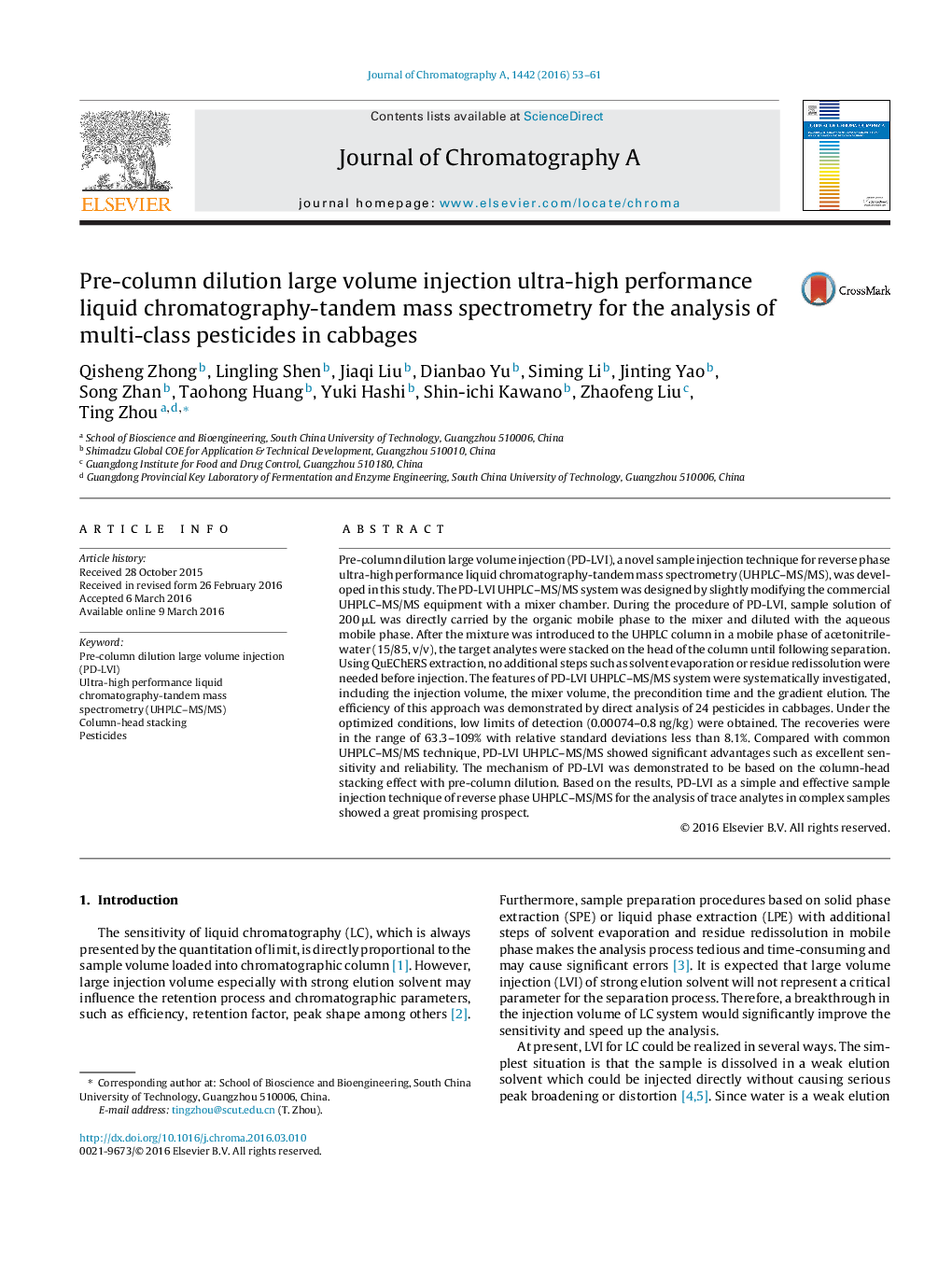| Article ID | Journal | Published Year | Pages | File Type |
|---|---|---|---|---|
| 1198700 | Journal of Chromatography A | 2016 | 9 Pages |
•A novel sample injection technique PD-LVI for UHPLC–MS/MS was developed.•The features and mechanism of PD-LVI were systematically investigated.•The feasibility was demonstrated by analyzing 24 pesticides residues in cabbages.•PD-LVI could be extended to other LC system without extra complicated accessories.
Pre-column dilution large volume injection (PD-LVI), a novel sample injection technique for reverse phase ultra-high performance liquid chromatography-tandem mass spectrometry (UHPLC–MS/MS), was developed in this study. The PD-LVI UHPLC–MS/MS system was designed by slightly modifying the commercial UHPLC–MS/MS equipment with a mixer chamber. During the procedure of PD-LVI, sample solution of 200 μL was directly carried by the organic mobile phase to the mixer and diluted with the aqueous mobile phase. After the mixture was introduced to the UHPLC column in a mobile phase of acetonitrile-water (15/85, v/v), the target analytes were stacked on the head of the column until following separation. Using QuEChERS extraction, no additional steps such as solvent evaporation or residue redissolution were needed before injection. The features of PD-LVI UHPLC–MS/MS system were systematically investigated, including the injection volume, the mixer volume, the precondition time and the gradient elution. The efficiency of this approach was demonstrated by direct analysis of 24 pesticides in cabbages. Under the optimized conditions, low limits of detection (0.00074–0.8 ng/kg) were obtained. The recoveries were in the range of 63.3–109% with relative standard deviations less than 8.1%. Compared with common UHPLC–MS/MS technique, PD-LVI UHPLC–MS/MS showed significant advantages such as excellent sensitivity and reliability. The mechanism of PD-LVI was demonstrated to be based on the column-head stacking effect with pre-column dilution. Based on the results, PD-LVI as a simple and effective sample injection technique of reverse phase UHPLC–MS/MS for the analysis of trace analytes in complex samples showed a great promising prospect.
